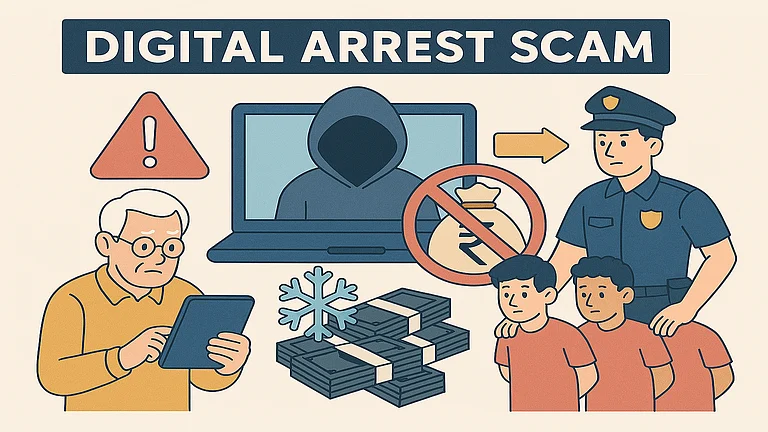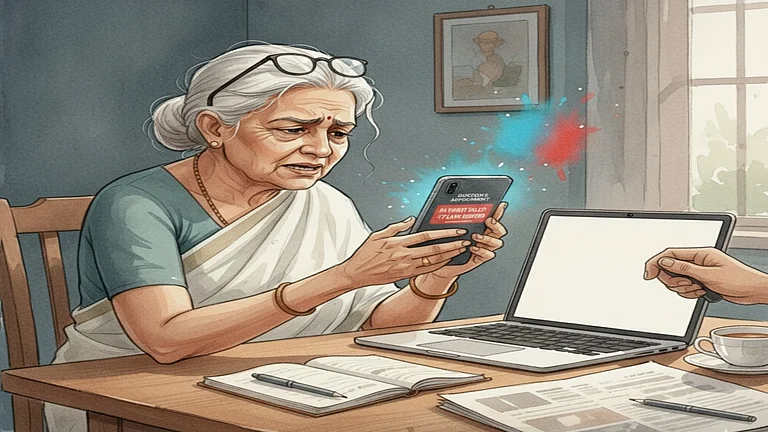
Summary of this article
MHA and CBI report reveals shocking data on fraud cases
Supreme Court highlights the whopping Rs 3,000 crore digital fraud cases and the need to address them
The court stresses urgency in tackling rising digital scams
The Supreme Court of India has reacted sternly to the revelations that Indian Citizens have been duped of approximately Rs 3,000 crore in digital arrest scams. These scams target unsuspecting individuals, often elderly people, by using impersonation and advanced technology. Fraudsters create a real-life-like environment, such as a police station, Court, etc., virtually, and coerce victims to transfer money under false pretences of criminal charges or investigations. The seriousness of the matter can be understood with the fact that the apex court took suo motu cognisance in October 2025 upon receiving a letter from an elderly couple, who fell for the digital arrest trick and transferred more than Rs 1 crore.
In the recent hearing on November 3, 2025, the Court directed authorities to take these matters seriously and handle them with an "iron hand". As per media reports, the Court also stressed that if the problem is not addressed now, it will magnify and could erode victims' money and public faith in the digital system, governance, and law enforcement systems.
On October 27, the Court directed all states and Union Territories (UTs) to provide information about the number of digital arrests cases, and also hinted at a possible transfer of all such cases to the Central Bureau of Investigation (CBI).
In the recent hearing, the Ministry of Home Affairs (MHA) and the CBI submitted a sealed report on these frauds. The bench, headed by Justice Surya Kant and including Justices Ujjal Bhuyan and Joymalya Bagchi, reviewed the report and found the sums involved in these scams shocking.
The Court appointed senior advocate NS Nappinai as amicus curiae in this case. Reports say the Court noted positive suggestions in the MHA and CBI reports. The Court agreed to share these with the amicus curiae. It also directed authorities to provide other letters received from the victims in the past, like the one that began this proceeding, to the Solicitor General and the amicus curiae.
SG Tushar Mehta, who represented the Centre, explained the challenges investigators face. He said that the crime often has complex transaction links. Criminals use advanced techniques and often make calls from untraceable sources. Mehta added that many scams occur in countries without mutual legal assistance treaties with India.

















